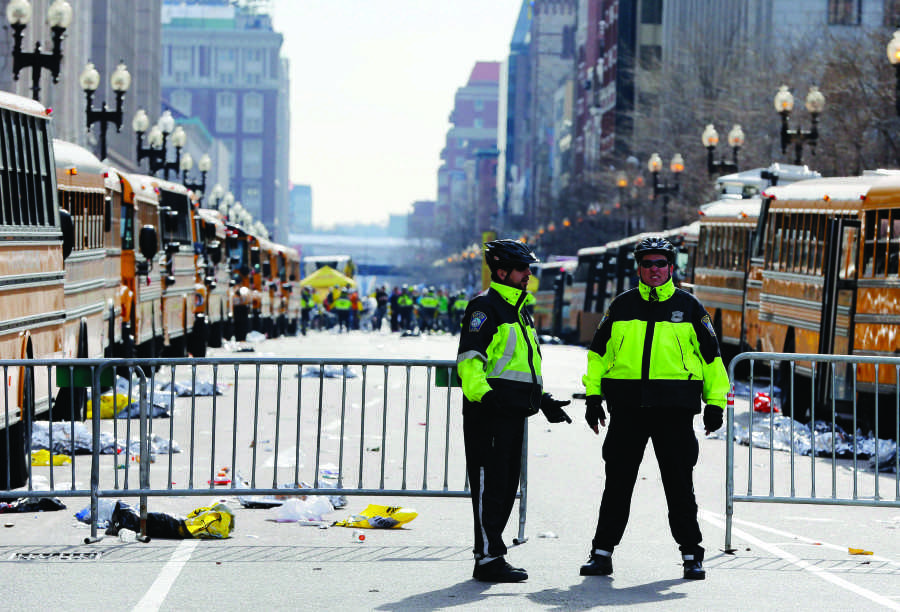 When news broke more than a week ago of a bombing at the Boston Marathon finish line, many worried that there would be an initial fear of running races in the future. Peers, family members and the media expressed this thought as correspondents tried to fill air time due to a lack of new information.
When news broke more than a week ago of a bombing at the Boston Marathon finish line, many worried that there would be an initial fear of running races in the future. Peers, family members and the media expressed this thought as correspondents tried to fill air time due to a lack of new information.
This type of sentiment – an assumed fear of the ordinary – frequently follows national tragedies such as the one that occurred last week in Boston.
On Sept. 11, 2001, planes became travelers’ worst nightmare as the nation watched the World Trade Center crumble to the ground. Last July, people claimed they would never re-enter a movie theater after a mass shooting occurred during a midnight showing of “The Dark Knight Rises” in Aurora, Colo. A mere two weeks later, many questioned the safety of places of worship when a Sikh temple in Oak Creek, Wis., served as the next location of tragedy. In December, parents were afraid to send their children to school when 26 people were killed in a shooting at Sandy Hook Elementary School in Newtown, Conn.
Last week, a feat meant to exhibit the unbelievable strengths of the human body instead resulted in injuries, amputations and death.
What makes these events terrifying is that they hit so close to home. Almost everyone has gone, or goes, to school, and many attend churches and movie theaters each week.
As for Boston, one of the suspects was eventually discovered in a Watertown resident’s backyard hiding in a boat. If that’s not “close to home” then I don’t know what is.
The events of the past week show that two people can cause an entire city to shut down. From a convenience store robbery to a shootout resulting in the deaths of a MIT police officer and one of the suspects, to a city lockdown including mass transit closures, the situation seemed like something out of a movie starring Vin Diesel or Bruce Willis.
When things like this happen, fiction becomes reality, and our everyday norms are disrupted. This idea of having such little control over safety in one’s own environment can induce fear, but it shouldn’t.
Although terrible, incidents like these are exceptions. Children across the nation have uneventful school days each week. Sunday church services come and go. People leave movie theaters not because they’re running from a shooter, but simply because the film ends.
Acts of terror are successful if they induce fear in the aimed targets. Because of this, it becomes society’s job to deny the individuals committing such acts the fear they wish to provoke.
The silver lining is that we don’t have to try to do this – the resistance comes naturally through our actions following such tragic events. In fact, such terrible incidents often bring out the best in us.
Extreme acts of kindness, compassion, unselfishness and courage are exhibited in the midst of the terror and tragedy – a significant other protecting a loved one during the Aurora movie theater shooting, the role of first responders when the World Trade Center crashed on 9/11, a child leading a group of students to safety in the wake of the Newtown shooting. There were bystanders jumping to aid the wounded rather than fleeing from the finish line to secure their own safety in Boston, and fundraising, donations and victim support initiatives have been established across the nation.
Acts of heroism in the face of danger, as well as simply going to school, church or the movie theater after these tragedies, speak volumes in combatting the fear we are supposed to feel when others intrude on our everyday routines.
These acts – the simplest, yet greatest kinds of heroism – prove that although fear may be present somewhere, the desire to help those in need and fight against those responsible will always reign supreme.
—
Brooke Goodman is a senior studying journalism and political science. Email [email protected] with anything you’d like to see her write about.



